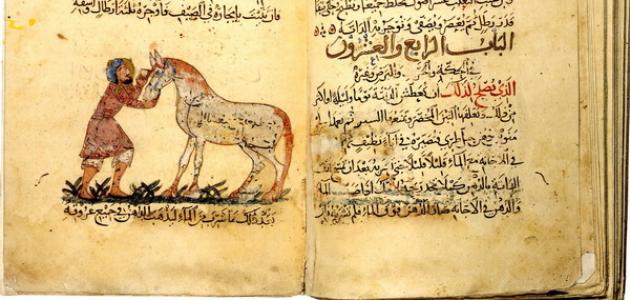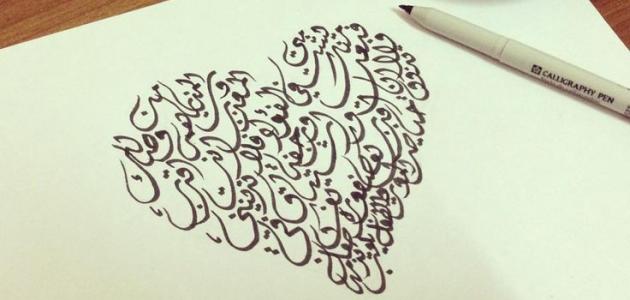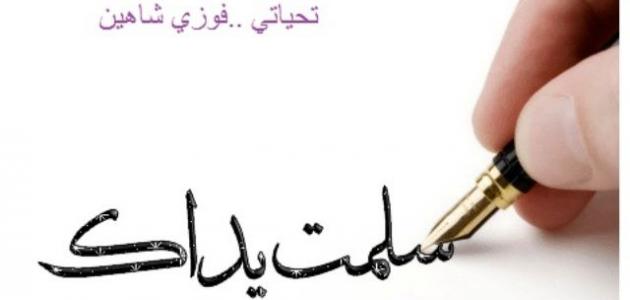Types of analogy
The analogy is divided into several sections according to certain considerations, which are as follows:
consideration of similarities
Similarity is divided according to the aspect of analogy into the following sections:
- Representation analogy: It is the analogy in which the face of the likeness is extracted from multiple, whether the analogy is tangible or non-sensual, as God Almighty says: (The example of those who spend their money in the path of God as a lover like a seventh of Sanabel in every Sinbul, a pill and a love of God, and God is a love and God is a good..
- Non-representational analogy: It is the analogy in which the face of the likeness is not extracted from multiple, such as our saying: “Immortal is like a lion.”
- detailed analogy: It is the analogy in which the similarity is declared and what is necessary for it, and an example of that: “The child is like a flower in purity and beauty.”
- Overall analogy: It is the analogy in which the face of similarity and its concomitant is not stated, such as when we say: “Scientists are like stars.”
- A clichéd close analogy: It is the analogy in which the face of the likeness is clear and close, and the mind of the listener does not need to contemplate and go deep in order to move from the like to the like, because it is apparent from the beginning and easy to deal with, such as: “Your cheek is like a rose.”
- A strange analogy: It is the analogy in which the mind of the listener needs to contemplate and think in order to move from the like to the like; Due to the concealment of the similarity from the beginning and its lack of clarity, and an example of this is the saying of God Almighty: (The likeness of the life of this world is like water that We send down from the sky, and the vegetation of the earth mixes with it, which people and cattle eat, until the earth takes on its adornment and beautifies its strength. Its people thought that they had power over it. Our command came to it by night or by day, so We made it stubble, as if it had not sung yesterday. Thus We detail the verses for a people who reflect.).
consider his tool
The simile is divided into three sections, as follows:
Read also:Religious poems- sent analogy: It is the tashbeeh in which its tool is mentioned, as God Almighty says: (And if they cry for water, they will be given water like molasses that scalds the faces. What an evil drink, and what an evil escort.).
- sure analogy: It is the analogy from which its tool is omitted, such as the poet’s saying:
The breeze has touched your valley, and I will not stay
- Pregnant women weighing in your grandparents put
- Eloquent analogy: It is the analogy in which the face and its tool are omitted, and an example of it is our saying: “Knowledge is light.”
Consider the multiple sides of the analogy
The simile is divided into four parts, as follows:
- The coiled analogy: It is an analogy in which each of its two sides meets its counterpart. As if the two or more suspects come together and the suspect or more together, and this is done by using letters of sympathy, as the poet says:
As if the hearts of the birds wet and dry
- I hate jujube and fouling worn out
- Different analogy: It is the similitude in which each likeness meets the likened to, as the poet says:
The earth is a ruby and the air is a pearl
Read also:hair elements- The plant is turquoise and the water is crystal
- Settlement analogy: It is an analogy in which the similitude is multiple and the similitude is one, and it was given this name because it equated several similitudes with a single similitude, as the poet said:
Your opinions, your faces, and your swords
- In accidents if they are domesticated
- plural analogy: It is the analogy in which the likened to it is multiple and the likened one, and it was named by this name; Because he collected in it for the similitude three similarities, as the poet says:
A lion on me and in wars
- So you hide away from Sfeir
Other types of analogy
Eloquent analogy
Eloquent simile is the simile that contains a simile and a simile only, and it is considered one of the most important types of simile and the most eloquent and exaggerated; Due to the claim of the unity of its two ends, and this type of analogy was distinguished from others by brevity as a result of the absence of the face of similarity and the tool of analogy with it, and this brevity made the mind of the listener make a great mental effort; In search of the sum of the common characteristics that could have been between them, and he was called eloquent because he reached a high degree of benevolence and acceptance among the eloquent, and an example of him is our saying: “The morals of the righteous are a breeze.”
Read also:Novel elementsimplicit analogy
The implicit analogy is the analogy that is devoid of the likened and the likened to, and does not declare them in any of the familiar forms of analogy, but they are understood from the meaning, and this type of analogy is brought to show that the matter attributed to the likened is possible and reasonable; To explain this, we mention that when the writer wants to express his thoughts, he resorts to a method that suggests analogy without reminding him of any of his usual forms. Desiring to come up with a literary style that is characterized by beauty and creativity, in addition to his endeavor to renew and prove the evidence of the judgment ascribed to the suspect with the possibility of occurrence, by concealing the elements of analogy and reaching the text to a high degree of eloquence, as an example of this is what the poet Abi Firas Al-Hamdani said:
My people will remember me if their grandfather finds them
- And in the dark night misses the full moon
The poet's words here included an inaccurate simile, as he resembles his condition when his family remembered him when their conditions worsened and their misfortunes intensified, and they did not find him in the case of the full moon, which is missed when the darkness intensifies. He did not declare this simile, but rather included it in this sense as an argument on the possibility of its occurrence.
Inverted analogy
The inverted simile is the simile in which the likeness becomes the likeness of it; By claiming that the common characteristic (likeness) in it is stronger and more apparent, as God Almighty says: (Shall we make the Muslims like criminals)And the origin is that it is said: “Should we make the criminals like Muslims?” Ibn Al-Athir defined this type of analogy in his book “The Walking Proverb” by saying: “And know that from the analogy is a beating called expulsion and vice versa, which is to make the one who is likened to a likeness, and the likened to a likeness to him, and some of them call it victory.” The branches are on the origins”, and among the examples that came from the words of the poet Al-Buhturi:
In the full moon, something of its virtues
- And the penis has a share of bending it
Sections of the likened and the likened to
sensual
By sensory analogy, what is meant is the analogy that perceives its matter with one of the apparent five senses; This means that the two sides of the analogy may share a sensory quality that is seen, heard, smelled, tasted, or tangible, and we will explain that as follows:
- sighted: That both sides of the analogy be perceived visually, such as shapes, colors, movements, magnitudes, and everything related to them, such as likening a beautiful face to the sun, and likening black hair to the night, and an example of that is the words of God Almighty: (And his neighborhood is the installations in the sea like flags)The visual quality that is common to ships and mountains is height, and they are among the qualities that are perceived by sight.
- two audiobooks: That both sides of the analogy be aware of hearing, whether the simulated sounds are strong or weak, or what happened between them, such as: “The sound of cannons is like thunder.”
- Two sniffers: That both sides of the analogy be aware of the sense of smell, for example: “The scent of flowers is like musk.”
- Two tasters: For both parties to the analogy to be aware of the sense of taste, such as when we say: “Her juice is like filtered honey.”
- Two tangibles: That the two sides of the analogy be aware of the sense of touch, such as things that are hot, cold, wet, dry, hard, soft, light, and heavy, and everything related to these states, such as our saying: “a face like silk.”
The imaginary analogy was attached to the sensory analogy, and it is the analogy that consists of many parts that have a real existence and are perceived by the senses. As for its total synthetic image, it does not exist in reality, but rather it is a mental image made in the human imagination. This simile was joined to the sensory simile because its parts are perceived by the senses, and because the imagination and the senses share in that what is perceived by them is the image and not the meaning, and an example of that is His saying, the Most High: (The example of those who received the Torah and then did not carry it is like a donkey carrying books).
two minds
By mental analogy, what is meant is the analogy in which both sides of the analogy are not aware of one of the five apparent senses, but rather are aware of the mind, as the poet says:
Love is like death is irrevocable
- What is in the measure of the poor lover
The scholars of rhetoric attached to this analogy the imaginary analogy, which is the analogy that is not perceived by one of the five senses, but if it existed in reality it would have been perceived, and an example of that is the words of God Almighty: (It is a tree that emerges from the root of hell * its tops are like the heads of devils * for they eat from it and fill their stomachs with it).
two different
The different analogy is the analogy in which one side of it is sensual and the other is mental, such as the analogy of perfume to good manners, so the analogy to the sense of smell is “perfume” and the analogy to it mentally is “good manners,” as the poet says:
I was given a perfume like his praise
- As if he gave him his morals
| Training: Identify the like from the like in the following sentences: |
|---|
| Sentence | likeness | suspect |
|---|---|---|
| His hand is like a cloud. | (…………………………) | (…………………………) |
| Her face is like the sun. | (…………………………) | (…………………………) |
| Laila is like a river in her giving. | (…………………………) | (…………………………) |
| Ahmed is like a leopard in his speed. | (…………………………) | (…………………………) |
| Salwa like the moon. | (…………………………) | (…………………………) |
analogy purposes
The purposes of similes varied, and they are often beneficial to the simile, as follows:
Statement of the condition of the suspect
When the simulated person is an indefinite one and the adjective is not defined before the similitude, then the similitude comes and attributes it to a known similitude and adds the adjective to it, so the indefinite thing is removed from it and it becomes known and clear, and an example of that is the words of God Almighty: (as if they were alert reds).
Statement of the possibility of the case of the suspect
When a strange thing is attributed to the similitude, this ambiguity does not disappear except by mentioning the ambiguous with it, which is clear and recognized, so that the image of the ambiguous is fixed in the mind of the listener, and settles in his soul. An example of this is the poet’s saying:
If hearts dissonate and respond
- Like a bottle break it does not force
Statement of the amount of the condition of the suspect
If the simile before the simile is known in terms of the strength or weakness of the attribute to be proven to him, then the simile comes to indicate the amount of his share of this attribute; For the speaker to explain what he means from this amount to the speaker, and an example of that is the words of God Almighty: (And you see the mountains and you think they are solid, while they pass like clouds).
Suspect case report
Emphasizing what was attributed to the similitude to establish itself in the mind of the listener and thus strengthen its importance to him, as if what was ascribed to him needs confirmation and clarification, so the similitude comes to what he is sensually likened to and is known and more visible, and highlights the simulated and makes it more clear, and like when we say: “Is the age of boyhood anything but Authentic or magic?
Indication of the possibility of the presence of the suspect
When a strange thing is attributed to the suspect, and it is unlikely that this matter will happen, his strangeness does not disappear except by mentioning his likeness that explains to him the possibility of its occurrence, as the poet says:
A boy who lived in his favor after his death
- As it was after the torrent, its course is a hotbed
Praise and improve the analog
Improving the image of the likeness and praising him, and highlighting him in a desirable and appreciative way for the soul, so that the speaker attributes him to a likeness of him who has a good image and meaning; In order to encourage and interest him, as the poet says:
Gray streaks in youth are shiny
- And what a good night there are no stars
The ugliness of the analogy
Tashbeeh comes to distort the image of the one who is being compared, to slander him with what he despises and puts him off, and to portray him in an ugly image that the soul rejects, as God Almighty says: (Those who devour usury will not stand except as stands one who has been smitten by Satan's touch.).
The extremity of the suspect
The analogy shows the elegance of the likened in a beautiful way that relieves the soul, and this unusual wit comes to the mind of the listener usually because of the appearance of the likened in the image of the abstaining, or because of the scarcity of the presence of the likened in the mind of the speaker when the likened one comes. Examples of this are the words of the poet:
As if the eyes of the juicy daffodil around us
- Greased in agate agate
| Training: Determine the type of simile in the following sentences based on the above. |
|---|
| Camel | The type of analogy in it |
|---|---|
| The morals of the righteous are like the breeze in tenderness. | (……………….) |
| God said: (Selling is like usury). | (……………….) |
| The brave is a lion and the coward is an ostrich. | (……………….) |
| Ignorance is death and knowledge is life. | (……………….) |
| It is sweet as honey. | (……………….) |
| Teeth like snow. | (……………….) |
| As if the hearts of the birds were wet and withered... In their nest are the jujube and the worn-out fouling | (……………….) |
Elements of analogy
The analogy consists of four pillars, namely:
| Elements of analogy |
|---|
| The corner | tariff |
|---|---|
| likeness | It is one of the two sides of the analogy, and one of its basic pillars, and the analogy is not complete without its presence. |
| likened to | It is the other side of analogy and an essential pillar in it, and analogy is not valid without it. |
| Simulation tool | It is the word that denotes the meaning of similarity, such as kaf and what came with its meaning, and it comes as a word or an estimate. |
| The similarities | It is the common feature between the two sides of the simile. |
Definition of analogy
The analogy in the language is defined according to what was stated in the dictionary of the “Al-Qamos Al-Muhit” as a source derived from the verb “similarity”, and it is meant in rhetoric that two things are linked in a common way; Provided that this characteristic in the simulated person is stronger than that of the simulated one, and an example of this: likening a man to a camel in patience and endurance, and several sayings were reported by some linguists in defining the term similitude, although these definitions are different in pronunciation, but they are similar in meaning.
Among the most prominent of these definitions is the saying of Abu Hilal al-Askari, who defined the analogy by saying: “The description is that one of the described is acting on behalf of the other with a tool of analogy, such as your saying: “Muhammad is strong like a lion.” This saying is correct in custom, even if Muhammad is not in his severity like a lion in his true nature. And also Ibn Rasheeq, who defined it by saying: “The description of a thing is what is close to it and what it looks like from one aspect or many aspects, not from all of its aspects, because if it fits him completely, it would be him. This is due to his courage and strength.” As for Al-Khatib Al-Qazwini, he defined the analogy, saying: “It denotes the sharing of an order for an order in a meaning.”









